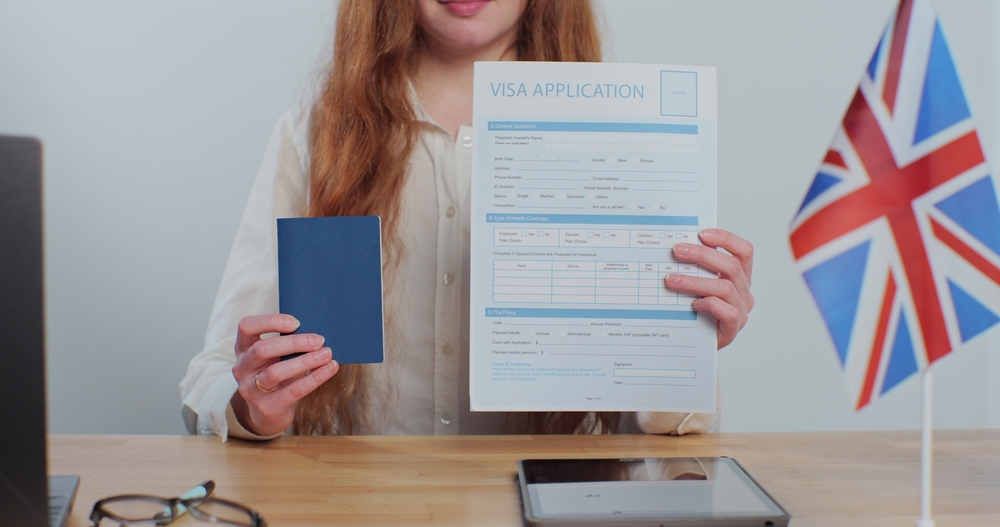Living in the UK, I see how quickly costs like rent, bills, and groceries increase. But Anna’s story shows it doesn’t have to be this way. She doesn’t make big sacrifices or struggle to save. Instead, she found a way to save 50% on living costs in the UK. Anna uses innovative tools and makes minor changes to how she spends her money.
She doesn’t give up what she enjoys; she manages her money better. Her plan is easy to follow and works for anyone ready to save. What I like most is how simple her approach is. It proves that saving doesn’t need to be complicated. Let me share her steps so you can start saving, too.
Read: The Ultimate Guide to Landing a Remote Job with No Experience
Why UK Living Costs Are So High
The cost of living in the UK is a significant concern for many residents, and several factors contribute to the financial strain.

Rent Fees
Rent is one of the biggest expenses for UK residents. In cities like London, the cost of a one-bedroom flat often exceeds £1,500 per month. Even outside major metropolitan areas, rent prices are climbing steadily. This leaves individuals and families with limited disposable income for other necessities.
Energy Bills
Energy costs are another significant burden. The average annual energy bill in 2024 is close to £2,000, and prices seem to increase yearly. Heating during the winter and general electricity usage can quickly consume a significant portion of monthly budgets.
Food and Transportation Costs
Groceries and public transportation expenses are also on the rise. Food prices have hit record highs, making weekly shopping trips more expensive. Meanwhile, commuting costs, whether by train, bus, or car, continue to climb, especially with fluctuating fuel prices and increased rail fares.
Inflation and Stagnant Wages
The situation is made worse by the growing gap between inflation and wage growth. As living costs continue to rise, salaries have failed to keep up, making it increasingly difficult for households to afford necessities.
The Simple Change That Made All the Difference
Like many others, Anna was overwhelmed by the high cost of living. Instead of making drastic lifestyle cuts, she focused on small but effective strategies to ease her financial stress.
Downsizing and House Sharing
One of Anna’s first steps was to relocate to a more affordable area. By choosing to live outside the city center, she reduced her rent by 30%. She further cut costs by sharing her home with a housemate, which allowed her to split rent and utility bills.
Leveraging Technology for Savings
Anna turned to budgeting and discount apps to track her spending and find deals. She used apps to compare grocery prices, locate special offers, and plan shopping trips. For her bills, she researched cheaper energy suppliers and used cashback platforms to earn money on everyday purchases.
Cutting Unnecessary Expenses
Small lifestyle adjustments also made a big difference. She canceled unused subscriptions, cooked meals at home instead of eating out, and opted for free or low-cost entertainment options.
Through these manageable changes, Anna regained control of her finances without sacrificing her quality of life. Her story highlights how small, strategic actions can make a significant difference in overcoming high living costs in the UK.
Step-by-Step Guide to Saving Money
Anna’s money-saving plan was simple and effective. Here’s how she did it:
Affordable Housing
- Move to Cheaper Areas: Anna relocated to a more affordable neighborhood, cutting her rent significantly.
- Shared Living: She got a housemate to split costs, saving money on rent and utilities.
Lowering Energy Bills
- Switch Providers: She found a new energy supplier with cheaper rates and saved hundreds of pounds a year.
- Use Less Energy: Anna installed a smart thermostat and unplugged devices she wasn’t using to lower her energy bills.
Smarter Grocery Shopping
- Plan Meals: By planning her weekly meals, Anna avoided waste and saved money.
- Shop at Discount Stores: She switched to budget supermarkets like Aldi and Lidl and found great grocery deals.
Earning Extra Income
- Freelancing: Anna used Fiverr to earn money using her skills in her free time.
- Selling Unused Items: She sold things she didn’t need online, making extra cash while decluttering her home.
These simple steps helped Anna cut her living costs in half. Making small, intelligent choices gave her more financial freedom and peace of mind. Her story shows anyone can save money, even in today’s challenging economy. It just takes a few innovative changes and consistency to make it happen.
Read: Understanding the Cost of Living in the UK: How Immigrants Can Save Money
The Impact: Cutting Living Costs by 50%
When Anna decided to take control of her finances, her monthly budget looked like this:

- Rent: £1,200
- Utilities: £200
- Groceries: £400
- Transportation: £150
- Miscellaneous Expenses: £300
Total: £2,250
This left her struggling to save or plan for the future. But with determination and minor, intentional changes, she achieved remarkable results:
- Rent: £600 (by sharing her home with a flatmate, effectively halving her housing cost)
- Utilities: £100 (using energy-saving devices and forming habits like unplugging unused devices)
- Groceries: £250 (meal prepping and shopping at budget supermarkets like Aldi and Lidl)
- Transportation: £120 (opting for discounted travel passes and walking when possible)
- Miscellaneous Expenses: £150 (eliminating unnecessary subscriptions and impulse buys)
Total: £1,220
Anna’s cost-saving plan cut her monthly expenses by over £1,000, slashing her overall costs by more than 50%. This wasn’t just a financial transformation; it was a life-changing shift. “I finally stopped worrying about making ends meet,” she shared. “Now I feel secure and even excited about saving for the future.”
Her journey reminds us that significant changes don’t require extreme sacrifices, just thoughtful planning and a willingness to take small steps.
Read: How to Build Credit in the UK as a New Immigrant: Tips for a Strong Credit Score
Practical Steps You Can Start Today
Anna’s success shows that anyone can achieve financial stability by focusing on simple, practical changes. Here’s how you can get started:
Review Your Spending Habits
Take time to understand your current financial situation:
- Review your bank statements and track where your money goes each month.
- Group your expenses into rent, food, utilities, and entertainment categories.
- Highlight areas where you might be overspending or paying for things you don’t need, like unused subscriptions.
Understanding your spending is the first step toward controlling it.
Use Smart Apps and Tools
Modern tools make budgeting and saving more accessible than ever:
- Budgeting Apps: Use tools like YNAB, Emma, or Mint to set budgets and monitor your expenses.
- Money-Saving Apps: Honey, TopCashback, or MoneySavingExpert can help you find discounts and cashback offers.
- Energy Monitoring Tools: Devices like smart thermostats can track and reduce your energy usage automatically.
These apps work quietly in the background, helping you make the most of your money with minimal effort.
Start Small and Build Consistency
Significant savings don’t happen overnight, but small changes add up over time:
- Cut Back on Unnecessary Expenses: Reduce dining out or opt for free activities instead of paid entertainment.
- Shop Smarter: Plan meals and stick to a grocery list to avoid impulse purchases.
- Reduce Energy Waste: Turn off lights in empty rooms and unplug devices you aren’t using.
Start with one or two minor adjustments, and as they become habits, add more. Each step gets you closer to your financial goals.
Why These Strategies Work for Everyone
The principles that worked for Anna can work for you, too. Here’s why:
- They’re Customizable: These steps adapt to your situation, whether living alone, with a partner or supporting a family.
- They’re Supported by Experts: Financial planners emphasize that small, intentional changes, like budgeting and meal prepping, lead to long-term savings.
- They’re Easy to Maintain: These methods focus on practical, realistic changes, not extreme sacrifices.
Studies show that effective budgeting can increase financial stability and reduce stress. Anna’s story proves you don’t need a high income to create breathing room in your budget. You can experience the same relief and confidence with a bit of creativity and persistence.
Start Saving Today with Small, Simple Changes
Saving money doesn’t mean giving up what you enjoy; it means making more intelligent choices. Start by examining your spending and picking one area to improve, like reducing energy waste or finding cheaper groceries.
The key is consistency. Even the smallest steps, like walking instead of driving or preparing meals at home, can significantly impact over time.
Remember, saving money isn’t about cutting corners. It’s about creating a more secure and hopeful future. With the right mindset and strategies, you can take control of your finances and start building the life you want.
Saving money doesn’t have to be complicated; it just takes small, thoughtful steps to make a big difference.


